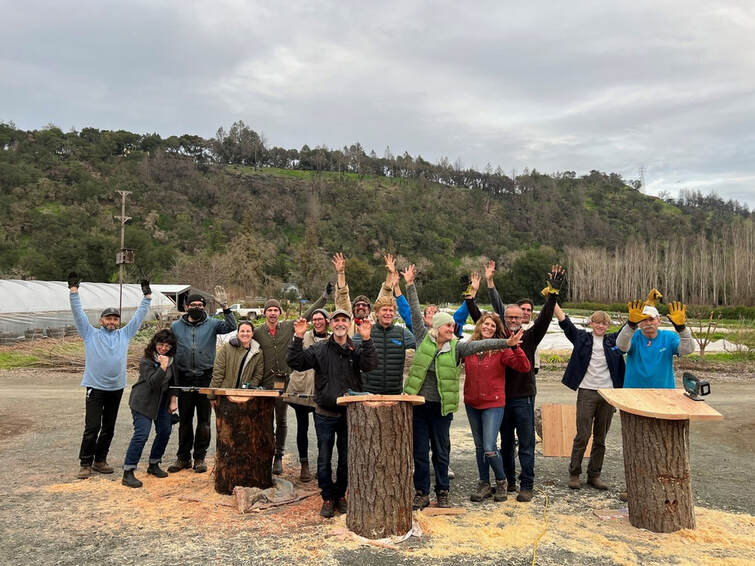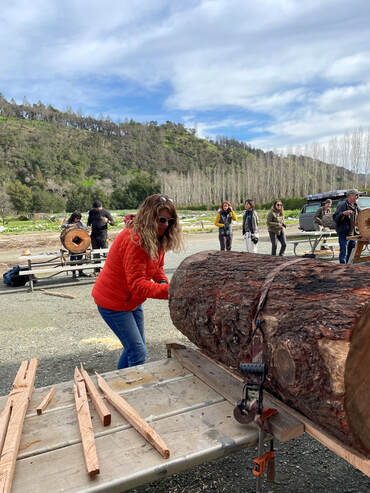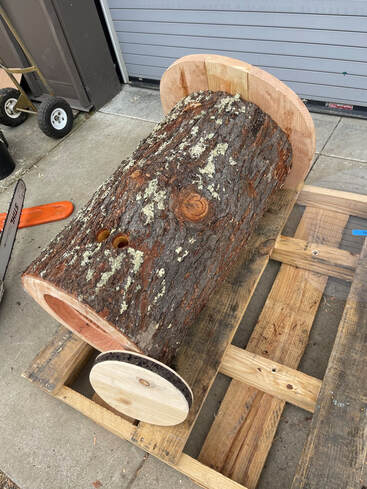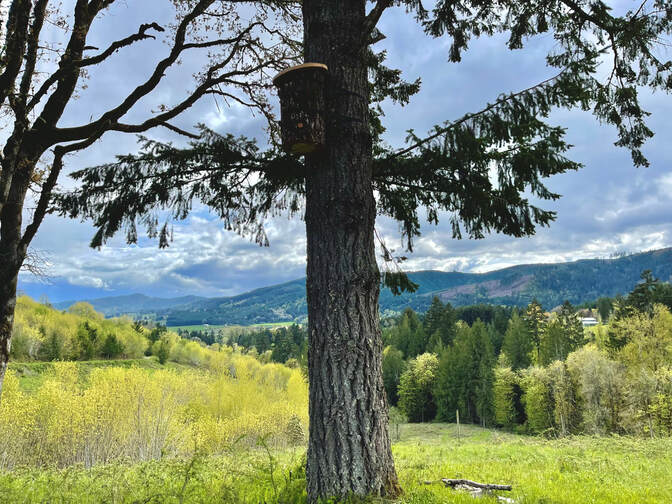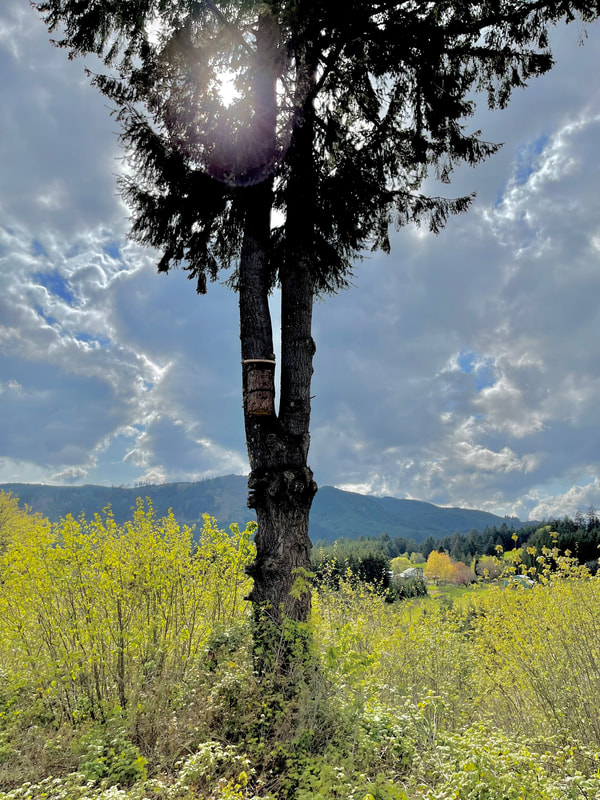APIS: The western honeybee or European honeybee (Apis mellifera) is the most common of the 7–12 species of honeybee worldwide. The genus name Apis is Latin for "bee", and mellifera is the Latin for "honey-bearing", referring to the species' production of honey that will be used to sustain the colony for the winter.
At David Hill Vineyards & Winery we recognize the importance of honeybees and want to do our part to foster their ability to not only survive but to also thrive. It is easy to talk the talk about sustainability and biodynamic programs, we prefer to walk the walk . This is why transitioning from a conventional beekeeping program to a honey bee re-wilding program made 100% sense.
It all started with an article in Oregon Wine Press in July 2021. It piqued our curiosity - we could not stop thinking about the concept of letting bees live wild in the wild. This lead to a Re-envisioning Beekeeping in a Time of Crisis course through the College of Marin.
The intense enthusiasm of Apis Arborea founder, Michael Thiele, was contagious. What he taught made sense. It resonated. A change was necessary.
In January of 2022, after a hands-on workshop in Saint Helena, California, we learned about building "apian nests" made out of tree logs.
At David Hill Vineyards & Winery we recognize the importance of honeybees and want to do our part to foster their ability to not only survive but to also thrive. It is easy to talk the talk about sustainability and biodynamic programs, we prefer to walk the walk . This is why transitioning from a conventional beekeeping program to a honey bee re-wilding program made 100% sense.
It all started with an article in Oregon Wine Press in July 2021. It piqued our curiosity - we could not stop thinking about the concept of letting bees live wild in the wild. This lead to a Re-envisioning Beekeeping in a Time of Crisis course through the College of Marin.
The intense enthusiasm of Apis Arborea founder, Michael Thiele, was contagious. What he taught made sense. It resonated. A change was necessary.
In January of 2022, after a hands-on workshop in Saint Helena, California, we learned about building "apian nests" made out of tree logs.
Fast-forward four months and the estate at David Hill Vineyards & Winery houses two Apian Nests.
We are thrilled to be part of the movement
to help preserve and protect honey bees
by allowing them to remain wild.
We appreciate and respect their
innate ability to care for themselves in
a nest which most closely resembles
what wild bees would choose as their home.
We sincerely love our little corner
of the world in the hills above
Forest Grove, Oregon.
We aspire to do what we
can to foster health in
all we do.
to help preserve and protect honey bees
by allowing them to remain wild.
We appreciate and respect their
innate ability to care for themselves in
a nest which most closely resembles
what wild bees would choose as their home.
We sincerely love our little corner
of the world in the hills above
Forest Grove, Oregon.
We aspire to do what we
can to foster health in
all we do.
